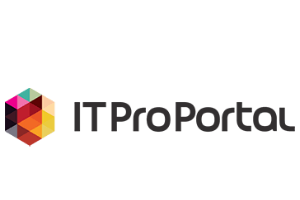Developments like AI, machine learning, natural language processing and new tools that incorporate advanced technologies are redefining future success for B2B sales professionals. Buzz is building about the use of AI and machine learning in sales, but AI-enabled sales technologies have not yet been widely adopted into mainstream use. That presents a clear opportunity for IT leaders who make decisions about technology strategy. IT leaders with the vision to deploy these breakthrough technologies early will give their entire organisation a path to success.
The current state of sales technology evolution echoes the trends of past advances that have changed the marketplace, transformed buyer behaviour and remade the way salespeople operate. Developments like AI, machine learning, natural language processing and new tools that incorporate advanced technologies are redefining future success for B2B sales professionals. In forward-thinking companies, salespeople are benefiting from AI and using tools like digital playbooks to manage opportunities.
As sales technology advances, early adopters gain a tactical advantage over peers who aren’t using the latest technology to maximise sales. IT professionals who give their salespeople a competitive edge with emerging sales technology generate significant value for their companies. That’s why it’s important to get ahead of the curve on emerging advances.
In Crossing the Chasm, bestselling author Geoffrey Moore described how technology products become mainstream, with visionary IT leaders adopting new technologies early and leaders who are driven primarily by pragmatism or other factors implementing innovative products later in the technology adoption lifecycle. Those who adopt promising technologies sooner can secure a competitive advantage for their sales teams. Here’s a brief overview of the current state of play in sales technology adoption:
1. High Adoption — Advanced Automation: This is the most recent entry to the other side of the chasm — mainstream use. Sales teams have widely adopted technologies like voice-to-text and text-to-voice apps, automated scheduling apps that arrange meetings based on digital notes and recorded conversations, and bots that automate numerous pre-sales functions. These tools eliminate the need for salespeople to perform tasks like manually recording contacts with prospects, and they enable companies to easily collect incredibly valuable data.
To gauge the effect of advanced sales automation, consider a typical salesperson’s daily routine. The salesperson might send 10 emails, make a dozen phone calls and talk to five prospects on the phone while receiving three responses to emails. In the past, each of these activities would have to be manually entered into a CRM system to track activities. Sales automation tools, which have crossed the chasm and gained mainstream status, capture the interactions automatically, enabling the sales professional to focus on building relationships.
2. Medium Adoption — Advanced Analytics for Insight: After years of buzz about advanced analytics’ potential, many companies have now added these types of solutions to their technology stack. One popular example is the digitalised sales playbook — a more modern take on the classic sales playbook, which outlines the standard objectives, techniques and metrics salespeople follow to close deals. The digital sales playbook incorporates analytics.
The digital sales playbook and other advanced sales analytics tools can use data to accurately pinpoint prospects’ location in the sales funnel and provide more insights salespeople can use to make decisions about tactics. This means that rather than relying primarily on instinct and intuition to manage opportunities, salespeople can access analytics to help them plan how to effectively pursue an opportunity. Advanced analytics have yet to cross the chasm and become mainstream, but they are giving adopters excellent results.
3. Early Adoption — AI-Based Guidance: The next frontier in sales technology is emerging now. It goes beyond advanced automation and analytics, incorporating artificial intelligence and machine learning elements to map out a path to success. Sales tools that provide guidance don’t just deliver information that confirms or contradicts salespeople’s instincts — instead, they generate a blueprint for success in the form of specific actions sales professionals can take to close deals faster.
These sales tools drive revenue through predictive selling, using AI to analyse huge datasets in real-time, evaluate buyer signals and assess market changes as they happen. Whereas the digital sales playbook that is becoming popular is static, AI-based guidance creates a dynamic digital sales playbook, using AI to prioritise leads, make more relevant recommendations and improve proposal timing. This technology hasn’t crossed the chasm yet, but sales teams that have implemented it are producing phenomenal results, which will accelerate adoption rates in the coming years.
AI excites
IT professionals acquiring new sales technologies before they cross the chasm are providing their sales teams with a competitive advantage. When advanced sales automation was an emerging technology, sales teams that were able to offload manual tasks and focus on building relationships were better equipped to close deals than peers who were still devoting large amounts of time to manually entering data on customer encounters.
Similarly, IT leaders who recognised the potential of insight-generating sales technologies early on were able to give their sales teams a competitive edge. Data analytics tools have transformed the way modern sales organisations operate, augmenting sales professionals’ instincts with data-driven insights that allow them to approach opportunities more effectively than competitors who rely on intuition alone to reach out to prospects.
It’s difficult to overestimate the significance of the emerging AI-driven sales technologies. Building on the innovations that came before it, sales tools that incorporate artificial intelligence and machine learning to provide a path to success for sales professionals are poised to transform sales operations. AI-enabled sales technologies can ingest data signals from a variety of sources, including CRM, social media, marketplace performance, etc., and create a more comprehensive view of opportunities.
Sales professionals with access to AI-enabled sales technologies can get a more complete profile of their prospects, gain insight into competitor strategies, monitor product performance across industries and much more. Their digital playbook will have dynamic features, allowing them to respond to changing factors in real time as they go up against competitors.
The result is a nimbler sales organisation, one capable of responding more quickly to shifting customer demands. Also, sales managers who use AI-enabled solutions can more readily recognise patterns and productive habits among top performers and use that information for coaching to ensure that those behaviours are adopted by sales teams across the organisation, improving performance more broadly.
Today, IT and sales leaders are excited about the potential application of AI and machine learning to transform sales, but AI-enabled sales technologies have not yet crossed the chasm into widespread use. Forward-thinking leaders therefore have a unique opportunity: Those with the courage and prescience to embrace these innovative technologies before they cross the chasm will give their organisations a clear advantage over competitors.
























